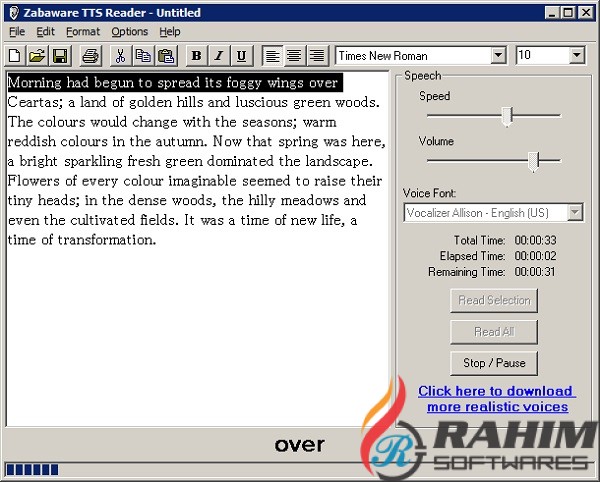

The element: The http-equiv attribute is not supported.The element: The setting only has an audible effect when the TTS engine would have inserted a sentence break without an explicit element.Duration, pitch, pitch-range, and contour values are ignored.But to make this attribute useful, a set of voices with varying age over the same language and gender needs to be installed. The variant attribute is not supported.Using this element does not necessarily lead to audible differences, as the system may elect to ignore these targets in order to produce optimal natural speech output. The element: the "none" level is not supported.SSML complianceĪll elements/attributes in the September 2004 Recommendation are supported, regardless of their rating (MUST, REQUIRED, SHALL, SHOULD, RECOMMENDED, MAY, OPTIONAL), except for the following: See the appropriate Language Supplement for information on language-specific support. Moreover, Vocalizer extends SSML with a few Nuance-specific elements/attributes, and provides schema documents for the extensions in Vocalizer_install_path\ doc\synthesis.xsd and synthesis-core.xsd. The Vocalizer SDK provides a built-in preprocessor that supports most of the W3C specification Speech Synthesis Markup Language Specification Version 1.0 – W3C Recommendation 7 September 2004. The essential role of the markup language is to standardize control of pronunciation, volume, rate, and other aspects of speech.

SSML provides a rich, XML-based markup language that assists synthetic speech generation in web and other applications. Speech Synthesizer Markup Language (SSML) is a markup language specification for voice browsers established by the World Wide Web Consortium (W3C). Development > Developing with Vocalizer > SSML support Vocalizer SSML support


 0 kommentar(er)
0 kommentar(er)
